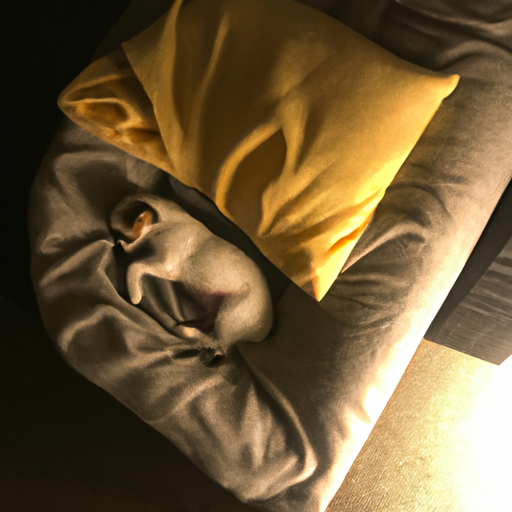As a caregiver, you are responsible for ensuring your new puppy has the best possible environment to grow and thrive. One of the most common questions asked by new dog owners is “where should a puppy sleep at night?”. This guide will address this question in detail.
1. Why Sleep is Crucial for Your Puppy
A good night’s sleep is as essential for your puppy as it is for you. A puppy can sleep up to 20 hours a day, depending on their age and breed. This sleep time is necessary for their growth, development, and overall health.
- Puppies grow during their sleep, just like human babies.
- Their immune system strengthens during sleep.
- Rest is necessary for their energy restoration.
- Proper sleep helps in the mental development of puppies.
2. Best Places for a Puppy to Sleep
Your puppy’s sleeping spot will greatly influence their comfort and sleep quality. Here are some of the best places for a puppy to sleep:
- In a crate: A crate can provide a sense of security for your puppy. It can be their own little den where they feel safe.
- In a dog bed: A dog bed is a comfortable and warm place for your puppy. It also provides them with a space of their own.
- In your bedroom: Having your puppy sleep in your bedroom can help strengthen your bond. However, it’s best to have them in their own bed or crate.
3. Setting Up Your Puppy’s Sleeping Area
When setting up your puppy’s sleeping area, consider the following:
- Comfort: Ensure the bed or crate is comfortable and cozy.
- Safety: The sleeping area should be safe with no small objects that your puppy could choke on.
- Temperature: Make sure the temperature is not too hot or too cold.
- Quiet: The sleeping area should be in a quiet part of your home to avoid disturbances.
4. Training Your Puppy to Sleep Through the Night
Here are some steps to help your puppy sleep through the night:
- Set a bedtime routine.
- Give your puppy a lot of exercise during the day.
- Limit water intake before bedtime.
- Use a crate or dog bed for your puppy to associate it with sleep time.
5. Common Puppy Sleeping Problems
| Problem | Causes | Solutions |
|---|---|---|
| Frequent waking up | Hunger, need for bathroom, noise | Scheduled feeding, bathroom breaks, quiet environment |
| Not sleeping at night | Excess energy, anxiety | Regular exercise, comfort object in bed, training |
6. When to Consult a Vet
If your puppy shows signs of extreme discomfort, restlessness, or insomnia, it’s best to consult a vet. They can rule out any underlying health issues causing your puppy’s sleep problems.
7. The Effects of Sleep on a Puppy’s Behaviour
A well-rested puppy is a happy puppy. Adequate sleep helps in managing your puppy’s energy levels and can prevent behavioural problems like anxiety and aggression.
8. Frequently Asked Questions (FAQs)
Q: How long do puppies sleep at night?
A: Puppies can sleep anywhere from 5 to 10 hours at night, depending on their age and breed.
Q: Should I let my puppy sleep in my bed?
A: While it’s entirely up to you, it’s generally recommended to have your puppy sleep in their own bed or crate for their safety and independence.
Q: What can I do if my puppy is afraid of sleeping alone?
A: You can comfort your puppy by placing a soft toy or a piece of your clothing in their bed. If the problem persists, consider seeking advice from a professional trainer or vet.
Your puppy’s sleeping habits and environment play a crucial role in their health and behaviour. As a caregiver, it’s your responsibility to provide them with a safe, comfortable, and appropriate place to sleep.



